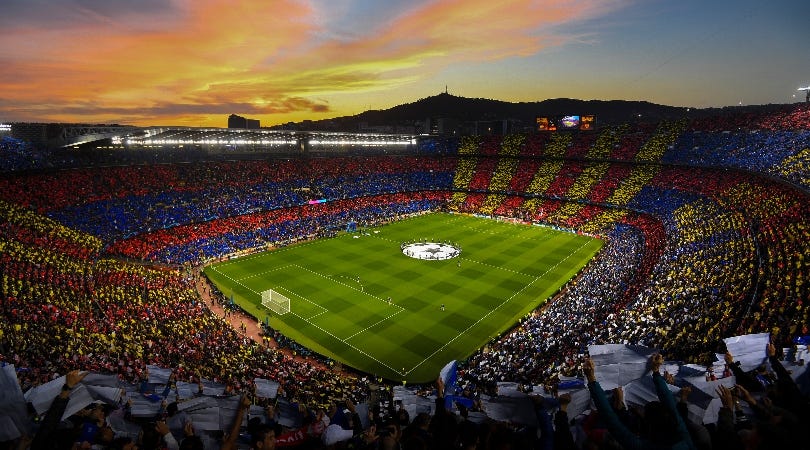125 years of FC Barcelona: how a tiny ad led to creation of one of world's greatest clubs
On October 22, 1899, an advertisement in the magazine Los Deportes sought to drum up some interest in football in the Catalan capital. The rest is history...

It all started with a tiny advertisement. On October 22nd, 1899, a 63-word call to action appeared in issue 34 of the Catalan magazine Los Deportes, in the Miscellaneous section at the back. Posted on behalf of Swiss footballer and businessman Hans Gamper and his compatriot Walter Wild, the ad sought prospective players to get in touch “to organise some games” in Barcelona.
The ad featured two glaring mistakes: Gamper was spelt as Kamper and Football as Foot-vall. But it had the desired effect. Just over a month later, FC Barcelona was born.
Gamper had been a player for a number of Swiss sides. He moved to Barcelona in 1898, but his initial attempts at promoting the sport in the Catalan capital were thwarted after he was told by Jaume Vila, owner of the Gimnasio Toulouse, that foreigners woud not be permitted to join his members – with whom the Swiss often played at the old velodrome in Bonanova – in the organisation of an official club.
There were no football pitches at that time, either, so early enthusiasts would play on the street or just about anywhere they could find a suitable space – often at other sporting installations.

Unperturbed, Gamper got in touch with Francesc Solé, proprietor of the Solé gymnaisum. Given more encouragement this time, he went ahead and posted the ad.
“Our friend and colleague Mr Kans Kamper [sic], of the foot-vall [sic] section of the Sociedad de Deportes and former Swiss champion, wishing to organise some games in Barcelona, asks anybody with an affection for said sport to get in touch with him and for said purpose to come to our offices on Tuesday or Friday evenings between 9 and 11,” it read.
A month later, there was an update in Los Deportes. “Our friends Wild and Gamper have gone a long way with their work to organise a Foot-ball Society. This afternoon the teams will play a game at the Hippodrome,” it said.
And 10 days later, Gamper, Wild and 10 others (five Catalans, two Englishmen, a German, another Swiss and a man from Aragón) got together at the Solé gym. And so it was that on November 29th, 1899, FC Barcelona was officially founded.
Gamper, who would affectionately be known as Joan, was Barça’s first club captain and scored the team’s first-ever goal as he netted twice in a 3-1 win over Català. In total, he played 55 times for Barcelona up until 1903, scoring 126 goals – including one in a 3-1 victory against Madrid CF in the first-ever Clásico. Later, he became club president and every year, the Trofeu Joan Gamper is played at Camp Nou as a curtain-raiser to the new season.
He passed away in 1930, but Barcelona continued to grow, going on to become one of the world’s greatest clubs. More than a club. And 125 years on from that tiny ad in Los Deportes, the text was published on Tuesday in the three Catalan sports newspapers.

What would have seemed a small step at the time and was described by Barcelona as “inconsequential” to most people, turned out to have a huge impact. Today, Barça has millions of fans all over the world and over 100 titles, while the Catalan club has been home to some of the finest footballers in history, boasts a youth academy admired across the planet and is currently redeveloping the stadium with the largest capacity in European football. Throughout its history, Barça has also been a huge symbol for Catalan identity; a vehicle for social inclusion.
And it all started with that tiny ad in 1899.




